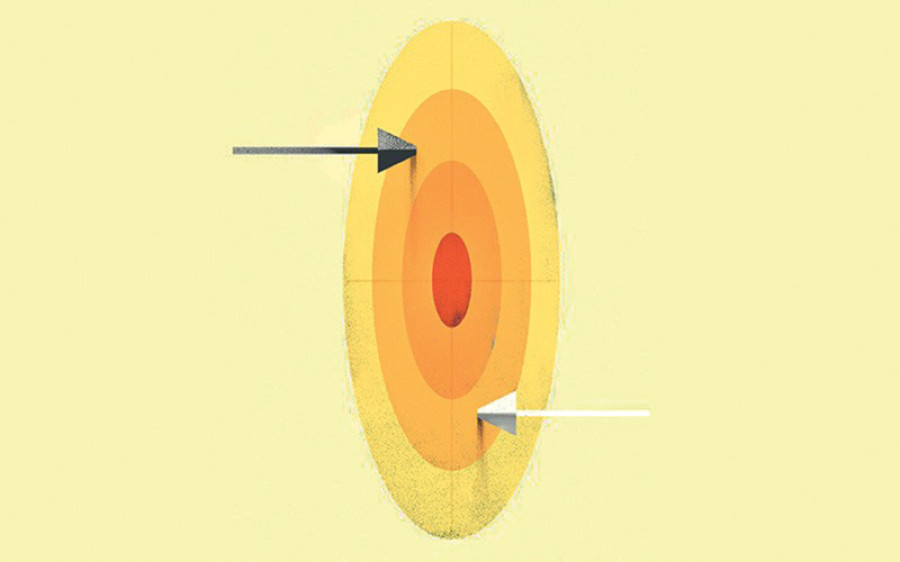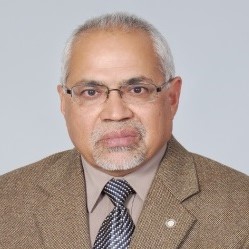Opinion
The Karki case
Suspended chief of the Commission for the Investigation of Abuse of Authority (CIAA) Lokman Singh Karki faces impeachment as proceedings are underway in Parliament.
Dinesh Pant
Suspended chief of the Commission for the Investigation of Abuse of Authority (CIAA) Lokman Singh Karki faces impeachment as proceedings are underway in Parliament. The circumstances surrounding his appointment in 2013 are being examined as the Supreme Court has reopened the case. These developments have aroused concern, confusion and despair among the public over the direction and energy of Nepal’s anti-corruption effort. The poor state of development in Nepal has often been attributed to bad or weak governance, rampant corruption, inefficiency and administrative delays.
Corruption is on the rise not only in terms of volume but also nature and area. Dishonesty has polluted almost all sectors of national life, from education, health, trade, energy, civil aviation and land administration to management of religious and social welfare trusts. The annual corruption index for Nepal as revealed by the World Bank and Transparency International continues to be alarming, and the volume of unsettled public accounts to the tune of nearly half of the national budget very well shows the level of such problems in Nepal. The anti-corruption drive is not without challenges. On the
economic front, the mass poverty and backwardness are not due to lack of resources but lack of mobilisation and utilisation. On the social and cultural fronts, society continues to respect the rich without considering how they became so. The involvement of politicians has been generally viewed as the root cause of corruption.
Pros and cons
Though various anti-corruption drives have been launched at the legal, policy and institutional levels, their impact on the national development process and public service delivery continues to be minimal. Being a constitutional body, the CIAA has been one lead agency for dealing with corruption-related matters, but its mandate to look into cases of ill intentions by public officials has been scrapped in the new constitution, making it relatively weaker. Given the nature of its mandate, the performance and activities of the CIAA have naturally generated mixed views. The government is responsible for checking corruption, but one cannot expect it to take action that may make it lose the support of its political allies and administrative apparatus. The proliferation of anti-corruption agencies within and outside government has also created a need for institutional coordination to avoid overlapping and duplication of effort.
In view of Lokman Singh Karki’s personality traits like fearlessness, eagerness to fight back, straightforwardness and resourcefulness, he could have capitalised on the present situation and emerged as a hero in the war against corruption by unmasking crooked public officials. Unfortunately, these traits appear to have been used in taking lopsided actions against those who dared to question his actions and appointment and showing favoritism to near and dear ones. This habit of his undermined the good things he has done. Now, one can easily understand what he did wrong, with all the three organs of the state—executive, legislative and judiciary—moving against him aggressively with the support of some sections of the civil society. The Nepali Congress, as a major government partner, has been showing a wait-and-see attitude, but it cannot remain indifferent for long. This is a rare move against a powerful constitutional official.
The current impeachment proceedings have both positive and negative effects. They can give a message to the public that state institutions will not tolerate any action that crosses the line of law and decent behaviour expected from top public officials. The ousting of the chief of an anti-corruption agency through parliamentary impeachment will be a rare example in the world. It will also set an example of political supremacy over corruption issues. Since acts of corruption, particularly those made under political protection, are to be dealt with through an independent judicial process, Karki’s impeachment should not imply that when corruption involving political leaders is likely to be revealed, there will be opposition from political parties. People know that if Karki is bad, political leaders in general are not good either. This is likely to discourage those holding independent constitutional positions from dealing with cases of corruption made by major political forces due to fear of impeachment.
People should be told
There are some predictable consequences of the impeachment move. It is also likely that Karki may voluntarily leave the ground by tendering his resignation. If the impeachment move fails to garner the required
number of votes, serious political polarisation is likely both within and across political parties. This will add to the growing despair among the common people regarding declining level of orderliness, low integrity of political parties, discriminatory application of laws for people of different power bases and prevalence of the belief that might is right. On the other hand, if the success of the impeachment move is negotiated by compelling or luring certain political parties to agree to a constitutional amendment, the consequence will remain uncertain in terms of its contribution to generating a political solution for long-term unity, peace-building and national development.
The people will find it a positive scenario only if Karki is ousted following a transparent and thorough investigation of his misdeeds. Unfortunately, Nepal’s political parties and leaders have left very little room for the people to be optimistic of their motive. Since the anti-corruption move is at a cross-roads, failure to handle the current impeachment move properly, whether culminating in Karki’s impeachment or resignation, is likely to stall the war against the deeply rooted problem of corruption in Nepal.
If Karki is impeached, there is a need to ensure that it is done on an unbiased and objective basis and that it does not harm or weaken the CIAA as the lead anti-corruption institution. At the same time, it should not set a precedent establishing political supremacy over any conduct of constitutional bodies. If Karki is not impeached, it should also not be due to any external intervention as suspected during his appointment or purely as a political favour. The people will also need to be told why the impeachment motion was initiated and why it could not be passed.
Pant is a former executive director of Nepal Administrative Staff College




 8.75°C Kathmandu
8.75°C Kathmandu










